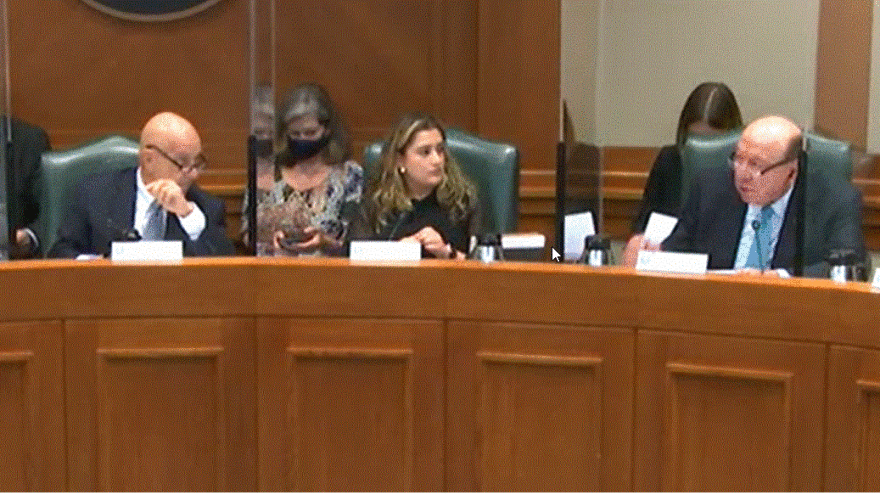During the last regular Legislative Session, State Sen. Juan “Chuy” Hinojosa, D-McAllen, introduced a bill aimed at ending the use of uncorroborated hypnosis testimony in Texas courts.
“Hypnosis has been used as a forensic tool in Texas since 1980. Witnesses are often told that memory works like a video tape and that during hypnosis you’ll be able to recall certain events and suspect descriptions that normal memory would not be able to access. The popular belief that hypnosis guarantees the accuracy of recall is still to this day without established foundation; in fact hypnosis often has no effect on memory at all,” he told the Senate Committee on Criminal Justice.
Hinojosa tried to pass a similar state law in 2019, but it didn’t even get a hearing. This session, though, things were different. There had been a series of articles in the "Dallas Morning News" highlighting the controversy. And in January, the Texas Rangers, the state’s leading practitioner of forensic hypnosis, announced it would halt the program.
Texas Rangers Captain Wende Wakeman, who is a certified forensic hypnotist, addressed the House Committee on Criminal Jurisprudence as they considered banning forensic hypnosis.
“We have had a program since the '80s that was recently suspended. So we do not at this time have a hypnosis program,“ she said.
The Texas Department of Public Safety said it’s developed more advanced interview and interrogation techniques that yield better results. But retired DPS Inspector Marx Howell, who has trained hundreds of Texas law officers in forensic hypnosis, says he’s disappointed with the decision.
“I've got my own ideas about why they did it. And there's a lot of political pressure against the use of Hypnosis,” Howell said.
The Texas Rangers suspended their program doesn't stop local law enforcement from still using forensic hypnosis. That concerns Mike Ware, Executive Director of The Innocence Project of Texas.
“The clear consensus is that investigative hypnosis is not science. It really has no place as a forensic tool or in the courtroom,” he said.

Ware supported the law to ban forensic hypnosis because he says it’s unreliable and it’s been used in wrongful convictions. The bill ended up passing unanimously in the State House and Senate. Then Gov. Greg Abbott vetoed it. In Abbott’s veto statement he said he supported limiting forensic hypnosis voided the bill because he found the final version too broad. And Abbott blamed one lawmaker for that: Rep. Eddie Lucio lll.
“I did not unilaterally make any changes. All changes were in consultation with all the stakeholders on the Senate side,” Lucio said.
Lucio, a Democrat from the Rio Grande Valley, is not seeking re-election. He says Abbott’s veto was the result of state prosecutors wanting to keep hypnosis, regardless of its reliability.
“The main message of the legislation was that it was junk science. I can't say it’s junk science here, but it's reliable over here. No, it's junk science,” he said.
And this junk science can send people to their deaths. Four people are currently on Death Row in Texas who were convicted with forensic hypnosis including Charles Don Flores. Flores maintains his innocence in the 1998 murder of Betty Black. No physical evidence links him to the crime.
“You know, it was passed unanimously. Everyone agreed to it, everyone. And so September 1st — it would have been law that we couldn't send another person to prison much less Death Row through the use of forensic hypnosis. And it was vetoed and it was vetoed. And so, you know, that's like, how did that happen?” Flores said.
Had the ban on forensic hypnosis became law it wouldn’t have overturned Flores’ conviction. But he says his main concern is that others could be subjected to the same injustice he says he’s facing.



